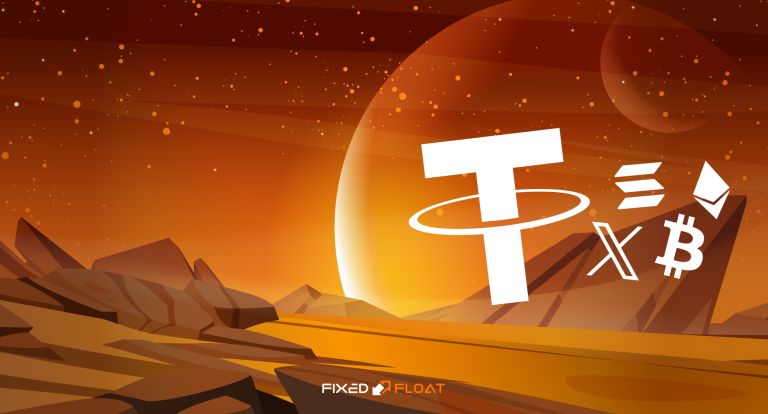Dogecoin is up 15%
Quotes of the meme token Dogecoin (DOGE) soared by 15% at the beginning of the week, rising from $0.078 to $0.089. This comes on the heels of the launch of the XPayments account on the popular social network, X. At the time of writing, the price of DOGE has adjusted slightly to approximately $0.07993. According to CoinGecko, the cryptocurrency's market capitalization has reached $11.9 billion, making it the tenth largest cryptocurrency.
.jpeg)
The XPayments profile, which has over 100,000 followers, suddenly appeared on the evening of January 20th. Representatives of the social network and Elon Musk himself, its owner, do not give any comments about what is happening. Interestingly, some users are speculating that XPayments may introduce crypto payment functionality, including support for DOGE. Tesla and SpaceX founder Elon Musk has long been an advocate of this meme token. In April 2022, he proposed lowering the cost of Twitter Blue subscriptions and allowing users to pay for the premium service using DOGE.
The volume of stablecoin transfers in a month on the Solana network increased to $303 billion
Since the beginning of this year, stablecoin transfers on the Solana blockchain have reached an astonishing $303 billion. This result has already surpassed the December 2023 figure, which was $297 billion, and increased 26.2 times compared to January last year, when it was only $11.56 billion. These impressive data were presented by the analytics company Artemis. This remarkable growth can be partially attributed to the growing interest in USDC on the Solana blockchain. The share of this blockchain network in the turnover of stablecoins has risen from 1.2% a year ago to an impressive 32%.
This trend began to take shape in October 2023 and has been steadily gaining momentum since then. While Ethereum is still the leader in this segment with January volume of $317 billion and a market share of over 33%, Tron is in third place with $240 billion in volume.
On January 18, Paxos announced the launch of the USDP stablecoin on the Solana blockchain, which will certainly contribute to the further growth and development of this favorable ecosystem.
Financial losses on the BNB Chain network have decreased by 85% in 2023
Financial losses in the BNB Chain ecosystem from security breaches decreased from $1.11 billion in 2022 to $161 million in the previous year - by 85%. This is evidenced by the AvengerDAO report. Over the past 12 months, there have been 414 incidents, which is 44% more than in 2022.
The three biggest incidents were the Fintoch exit scam, the rug pull of the IPP staking pool, and the hack of the Stake betting platform. All of them resulted in a loss of $64 million. Attack vectors on BNB Chain were divided almost equally between hacks (50.72%) and scams (49.03%). At the same time, the total financial loss from fraud ($87 million) exceeds losses from hacking ($73 million).
The most common areas were rug pull (35.1% of all incidents for the year), Ponzi schemes (22.5%) and compromise of hot wallets (17.1%). DeFi projects suffered the most losses - 82.06%. Online gambling takes second place with 11.04%, followed by projects of centralized crypto exchanges with an indicator of 3.85%.
Polygon caught up with Ethereum in the number of new users
The Polygon project registered an impressive 15.24 million new accounts in 2023, almost on par with Ethereum, which added 15.4 million new users, according to the latest report from Flipside. In this context, new users are considered to be those who have made at least two transactions on a given blockchain network.
Polygon surged ahead in the first half of last year, but then slowed down its growth rate slightly. Third place in the list was taken by the Bitcoin blockchain, which attracted 10.65 million new participants. The top five is completed by Solana and Arbitrum.
Terraform Labs declares bankruptcy
Terraform Labs (TFL), the organization responsible for UST and LUNA, has filed for bankruptcy. In December, the Southern District of New York court ruled in favor of the US Securities and Exchange Commission (SEC) in their lawsuit against TFL and its creator, Do Kwon.
The judge concluded that the company provided and sold securities, including UST, LUNA, wLUNA and MIR, without registering them. In his opinion, the defendants failed to present convincing arguments in their favor, and even MIR tokens “failed the Howey test with honor.”
The fraud trial will go to a jury after both sides' requests for summary judgment were denied. In addition to US jurisdiction, Do Kwon also faces claims from the South Korean authorities.
Metamask launches Ethereum validator staking services
The MetaMask team, which created the non-custodial wallet, is pleased with the community with a new feature that allows validators to participate in staking without the need to run their own node. This innovative feature is now available through MetaMask Portfolio and was implemented in close collaboration with the Consensys Stake infrastructure service. To participate in staking, you only need to deposit 32 ETH (or a multiple of that amount), and you can already become a validator.
Consensys Staking provides comprehensive software and hardware support. According to them, the service successfully manages over 33,000 validators with an impressive 99.99% uptime, accounting for 4% of the total ether staked.
This option offers an annual return of 4%, with a 10% service fee. This opens up new horizons and opportunities for MetaMask users, making staking more accessible and convenient.
Trezor reports that 66,000 of its users were affected by a data breach
The Trezor hardware wallet team has shared disappointing news of a security breach involving a third-party support provider that has resulted in a data breach for approximately 66,000 customers.
This misunderstanding affected users who interacted with the service since December 2021. As a result, the attackers gained access to the names (or pseudonyms) and email addresses of those who sought help.
To warn victims against potential phishing scams, the Trezor team decided to send emails to all of them with appropriate warnings. Since now, starting from January 17, the date of the attack, “no significant activity” on the part of hackers in this direction has yet been recorded. However, at least 41 users received messages from alleged attackers requesting sensitive information related to the wallet seed.
The developers made an important clarification that Trezor representatives “will never encourage you to perform such actions.” No user assets were damaged as a result of this incident.










